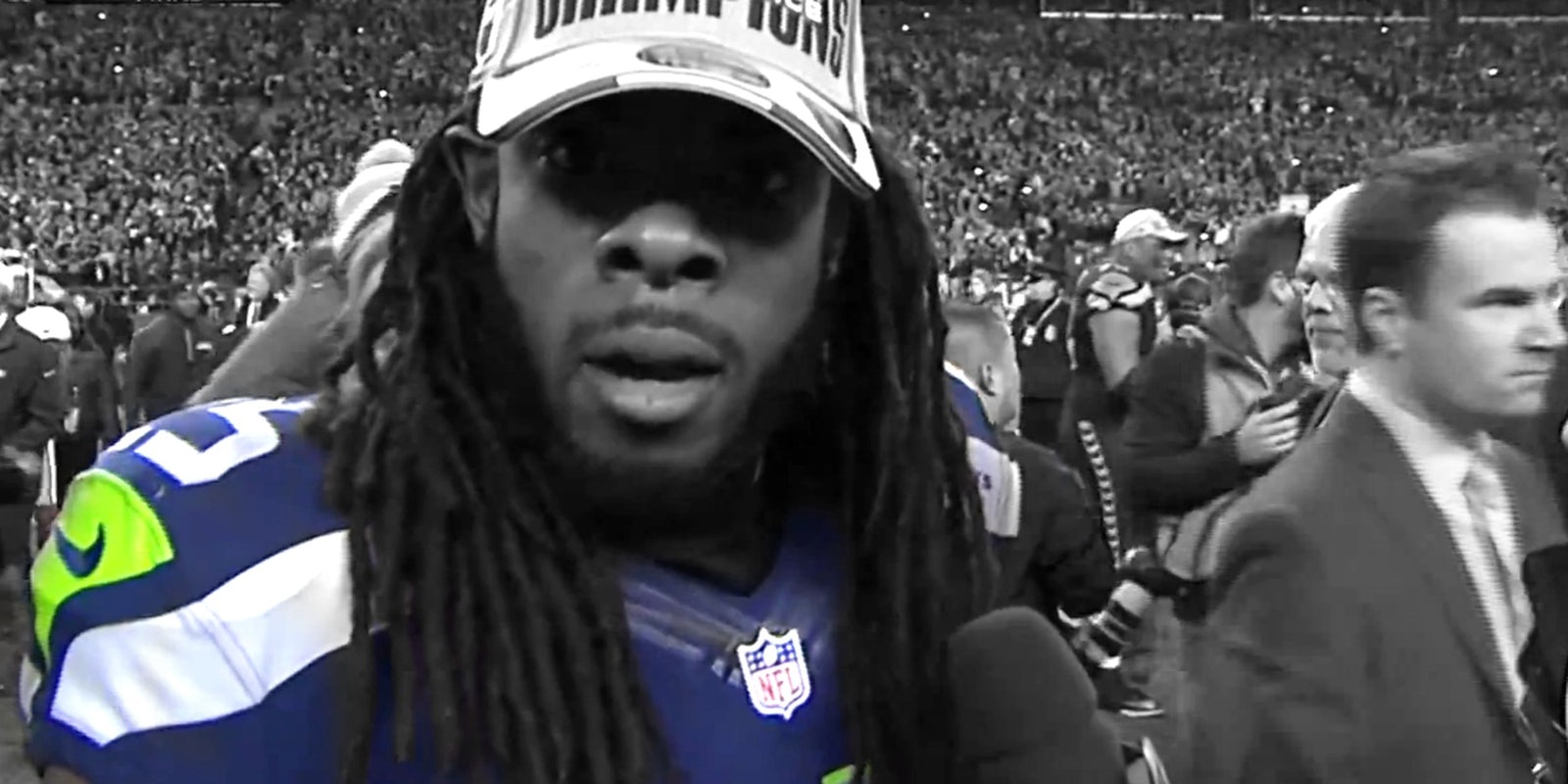Richard Sherman, the Seattle Seahawks cornerback whose postgame speech creates an easy litmus test for whether or not you think the NFL should be more like pro wrestling, might have feared his words were taken out of context.
He did what anyone else would do. He published a winding rant on the Internet the next day.
In an editorial posted Monday on Sports Illustrated‘s website, Sherman unapologetically set the context for his instantly legendary interview, in which he screamed that he was “the best corner in the game,” and that his rival, the San Francisco 49ers’ Michael Crabtree, was a “sorry receiver.”
Here’s what happened …
I spent most of the game on an island: I was targeted only twice during the entire NFC Championship. The first produced a BS holding call against me; the second ended the game. Michael Crabtree stutter-stepped out of his break on first down and sprinted toward the end zone. I was in good position for a pick until he pushed me in the back. My interception became a tip and an interception for Malcolm Smith in the end zone.
Game over. The Seahawks are in the Super Bowl.
In the essay, Sherman wrote that people tweeted “racial slurs and bullying language far worse than what you’ll see from me,” which is, sadly, demonstrably true. He also dug deeper at Crabtree, calling him “subpar.” He hinted at some slight between the two, but refused to give details besides saying it was “something he said to me this offseason in Arizona.”
But he also mixed in a healthy dose of skeptical claims.
In the final consequential play of the game, in which Sherman tipped a pass intended for Crabtree into the arms of a fellow defender, Sherman says he “ran over to Crabtree to shake his hand but he ignored me,” and only tried to tell him, “Good game, good game.” Similarly, gesturing a choking message towards 49ers quarterback Colin Kaepernick was essentially punishment for testing Sherman, he wrote.
Sherman did, at least, get one thing unquestionably right about himself. “It was loud, it was in the moment, and it was just a small part of the person I am,” he wrote.


